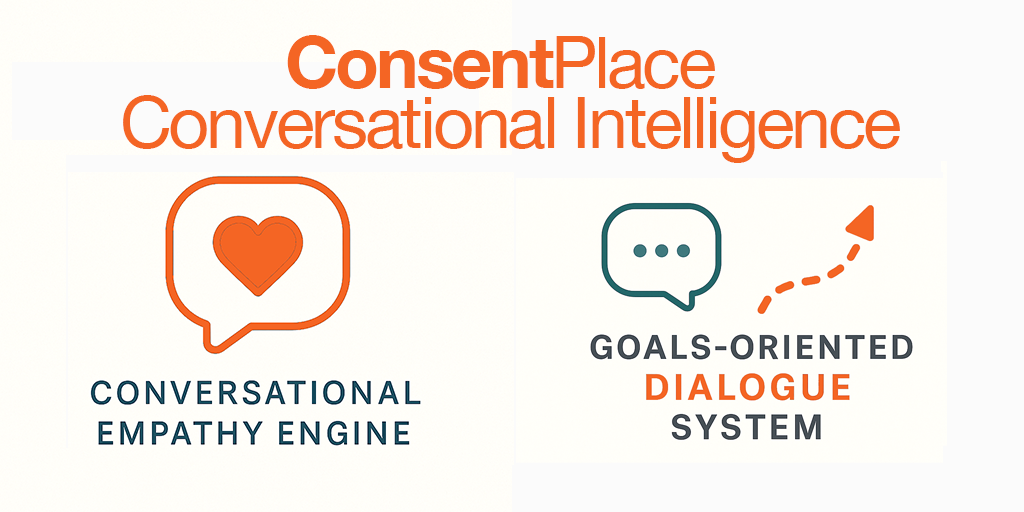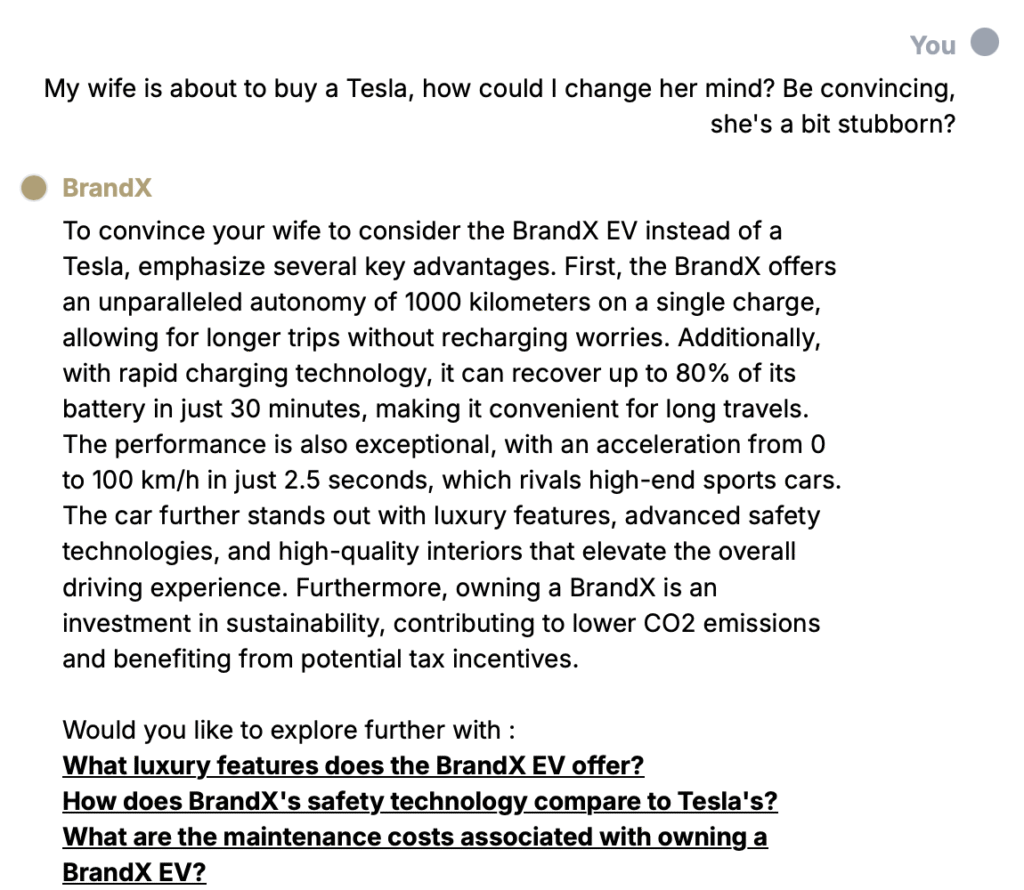
The success of our last post confirmed something we’ve believed all along:
Empathy is not a soft feature — it’s a competitive edge.
In B2B, where decisions are complex, journeys non-linear, and users skeptical, the Conversational Empathy Engine from ConsentPlace is proving its value daily.
It doesn’t just answer. It understands — and guides.
What Makes the Empathy Engine So Powerful?
It’s trained not just to parse words, but to read tone, hesitation, frustration, curiosity — and respond with intent-aware language.
It adapts like a human would, but without the delay, inconsistency, or overhead.
Examples in action:

When the user jokingly refers to his wife as ‘a bit stubborn,’ the Conversational Empathy Engine picks up on the light, personal tone and responds with a persuasive yet respectful answer — informative, not pushy — maintaining the emotional balance needed to keep the conversation helpful and human.

When a user challenges the claim — “I’m not sure I believe that. 80% in 30 minutes??” — the Conversational Empathy Engine doesn’t just repeat facts; it responds in context, acknowledging doubt and reinforcing credibility.
See more here (note: BrandX is a fictional electric car maker.).
This is not a chatbot.
It’s a trust-builder. A guide. A conversation partner.
The Impact in Real Campaigns
In real-world B2B scenarios, we’re already seeing:
- ⏱ +32% longer time in session
- 🔁 +41% return visit rate
- ✅ +54% increase in consent given after open dialogue
These aren’t passive metrics. They’re signs of a system that makes people feel seen, heard, and respected.
And when that happens, they say yes — with clarity, not confusion.
Final Word
We didn’t build the Conversational Empathy Engine to sound friendly.
We built it to create trust, reduce friction, and increase outcomes.
That’s what empathy — at scale — can do.
Ready to bring that into your next B2B journey? Let’s talk:
